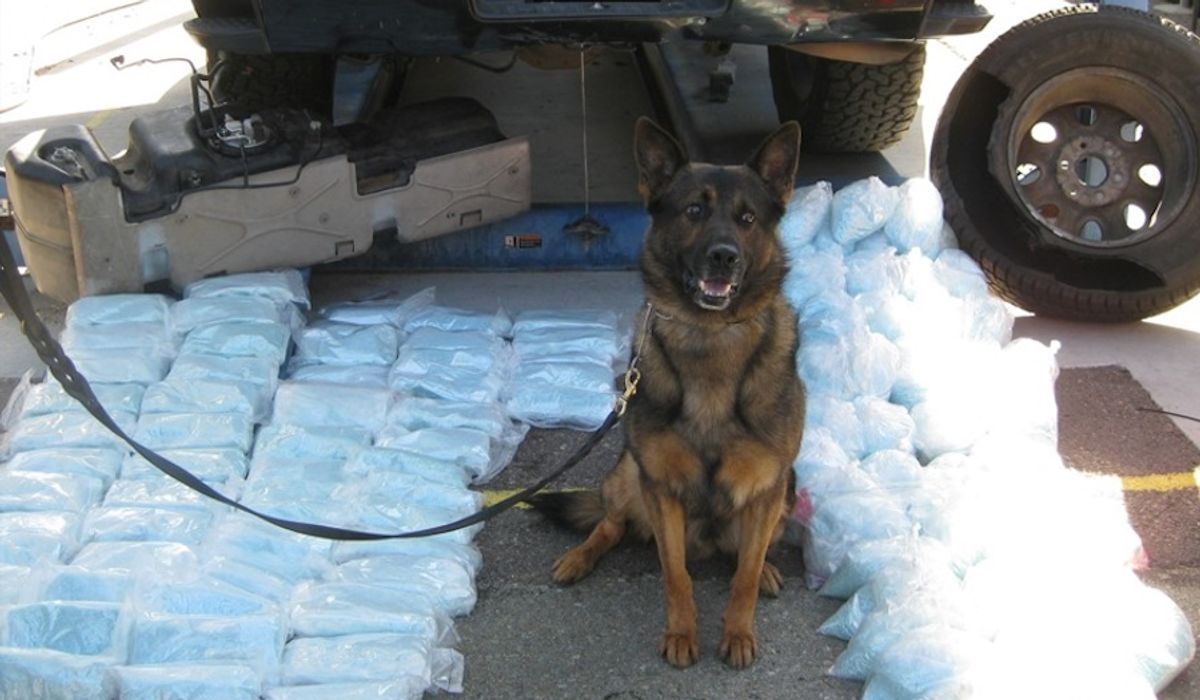FBI Director Christopher A. Wray told Congress this week that the Chinese government is at the root of the fentanyl trafficking that has flooded the U.S., and he said Beijing could shut down the flow of drugs if it wanted.
Thousands of miles away at almost the same time, President Biden was trying to extract that sort of commitment from Chinese President Xi Jinping at a meeting in San Francisco.
Mr. Biden emerged to claim victory. He told reporters that China had agreed to restart law enforcement coordination to allow the U.S. to more readily share its concerns about Chinese suppliers shipping ingredients and production equipment to Mexico, where the synthetic opioid is cooked up and sent across the border into American communities.
“We agreed that fentanyl and its precursors will be curbed substantially, and the pill presses,” Mr. Biden said. “That’s a big movement.”
The White House later elaborated. It said China warned its domestic industry that shipping the chemicals and pill presses could run afoul of the law and shut down certain China-based pharmaceutical companies.
China has restarted sharing data with the International Narcotics Control Board, which tracks suspicious shipments. Beijing suspended its participation nearly three years ago, the White House said.
If China is serious, experts said, it could make a dent in what has become the single largest killer of American adults age 45 and younger.
“We have certainly seen that entities in China, unscrupulous actors in China, are the primary sources not just of fentanyl precursors but of pill presses, which are used to press the fentanyl, and by the way, precursors for meth,” Mr. Wray told the House Homeland Security Committee. “There is not a doubt in my mind that if the Chinese government wanted to be more aggressive and serious about clamping down on precursors to fentanyl and meth and pill presses, there are all sorts of things they could do.”
Vanda Felbab-Brown, a senior fellow at the Brookings Institution who has studied Mexico’s cartels and the U.S. opioid crisis, said the agreement described by Mr. Biden is not a “magic wand” but is a great improvement over Beijing’s total noncooperation.
“We are in a much better place than we have been for several years,” she told The Washington Times.
She said getting the notice to industry, having the president’s voice heard on the issue and reengaging with international law enforcement efforts are all a good payoff for “months of engagement and diplomacy.”
“Our core problem with China has been not one of capacity but will,” she said. “My expectation is that China’s cooperation will wither over time, again. But nonetheless, we went from zero to actually something, and that’s an important accomplishment.”
Sen. Bill Hagerty, Tennessee Republican and a former ambassador to Japan who has long pushed for a tougher line on China over fentanyl, said Mr. Xi must deliver.
“Unless Xi Jinping acts today to end — full stop — the flow of Chinese fentanyl and precursors into the U.S. that are killing over 70,000 Americans annually, President Biden is getting suckered into yet another round of empty words and empty promises from Communist China in exchange for U.S. relaxation of pressure,” Mr. Hagerty said. “American families dealing with the deadly scourge of fentanyl deserve better than this. They deserve real results.”
Indeed, the U.S. has been through this cycle before.
Late in the previous decade, Chinese-manufactured fentanyl was surging into communities, sent via U.S. mail and private delivery services such as FedEx. Congress passed legislation to require more inspection of shipments. In 2018, President Trump demanded that Mr. Xi clamp down on his side of the ocean.
It seemed to work, at least for a while.
Opioid deaths plateaued at about 47,000 a year from 2017 to 2019 before surging again in 2020 and rising. Preliminary data for 2022 showed nearly 83,000 opioid deaths.
Experts said Chinese companies stopped shipping fentanyl to the U.S. but found new partners in the Mexican cartels. Now, they ship the manufacturing materials to Mexico, where the cartels fabricate the drug and send it north into the U.S.
Some China critics say the government in Beijing blessed the effort as another way to attack the U.S.
Mr. Wray, testifying to Congress, said Chinese companies “are the primary source” of fentanyl’s chemicals and the pill presses used by Mexican cartels. For good measure, he said, China is also the chief source of chemicals used to manufacture methamphetamine.
He said he was limited in what he could say publicly about the Chinese government’s direct role but added that it is naive to think the government wasn’t involved.
“When it comes to questions about state ties and China, I think it’s important for Americans to understand the distinctions that we draw in this country between the government and, say, the private sector are distinctions that in the Chinese country and the Chinese government, the Chinese state are distinctions that are blurry at best, if nonexistent,” he said.
After the cartels manufacture the fentanyl, they send it into the U.S., usually through the southern border. Exactly how remains a matter of debate.
Homeland Security Secretary Alejandro Mayorkas, sitting alongside Mr. Wray at the Capitol on Wednesday, said the vast majority of fentanyl is smuggled through the official border crossings, either in vehicles or carried by pedestrians. He put the figure at 90%.
Democrats say attempts to tie fentanyl to the surge of migrants jumping the border are misplaced.
Homeland Security Committee Chairman Mark Green, Tennessee Republican, said the 90% claim is not precise. In fact, 90% of seized fentanyl at the border is at the ports of entry, but there is no way of knowing how much is getting through, either at the ports or between them.
“You don’t know the denominator, you can’t figure the percentage,” Mr. Green said.
𝗖𝗿𝗲𝗱𝗶𝘁𝘀, 𝗖𝗼𝗽𝘆𝗿𝗶𝗴𝗵𝘁 & 𝗖𝗼𝘂𝗿𝘁𝗲𝘀𝘆: www.washingtontimes.com
𝗙𝗼𝗿 𝗮𝗻𝘆 𝗰𝗼𝗺𝗽𝗹𝗮𝗶𝗻𝘁𝘀 𝗿𝗲𝗴𝗮𝗿𝗱𝗶𝗻𝗴 𝗗𝗠𝗖𝗔,
𝗣𝗹𝗲𝗮𝘀𝗲 𝘀𝗲𝗻𝗱 𝘂𝘀 𝗮𝗻 𝗲𝗺𝗮𝗶𝗹 𝗮𝘁 dmca@enspirers.com



